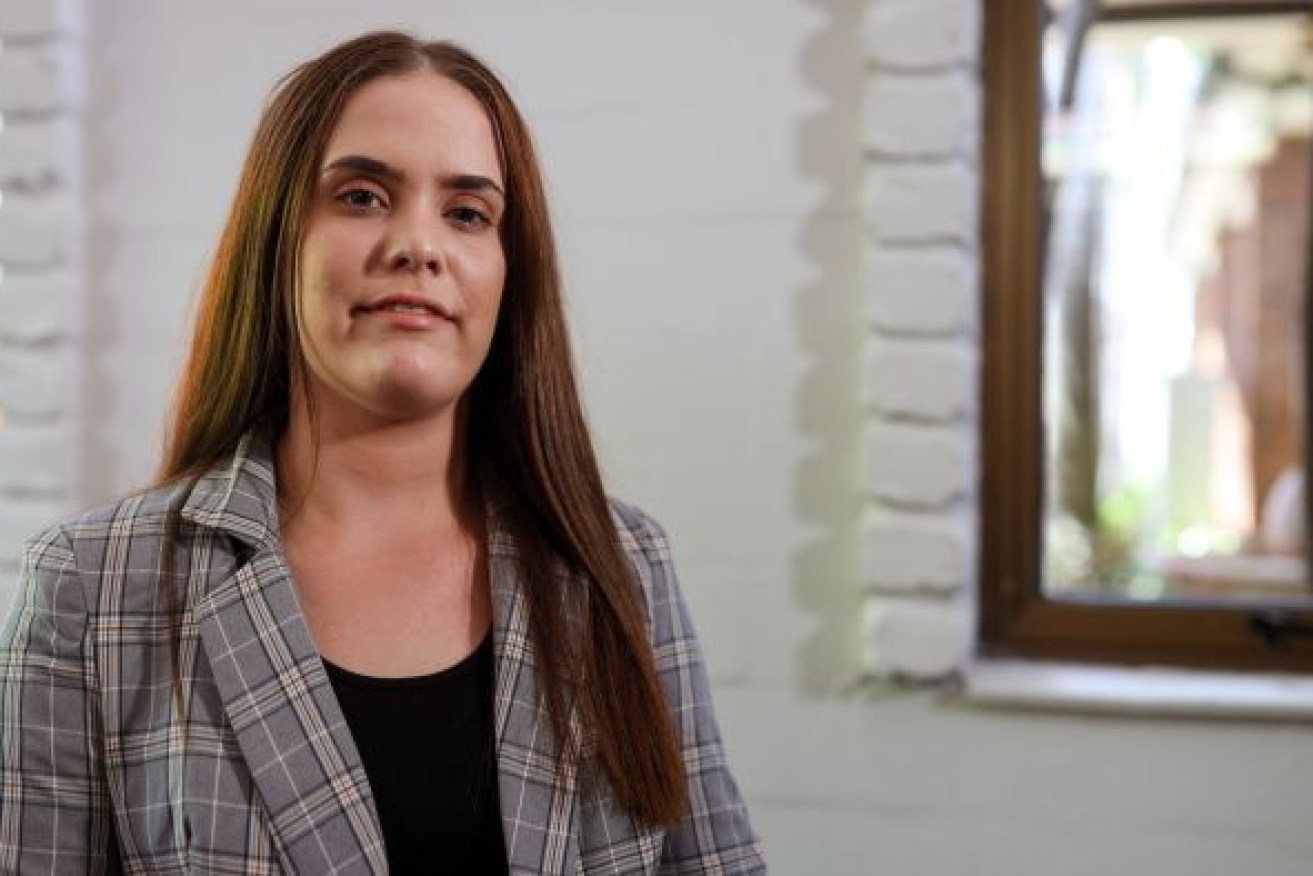Crumbling families. and the kids left to pick up the pieces
A report finds more than 55,000 young Australians are being forced to take on the role of being a parent to support relatives fleeing family breakdowns and domestic violence.

Kalyra Michelutti quit her job and deferred university to take on the parental role for her young sister. Photo: ABC
Kalyra Michelutti was a teenager when she became the primary carer for her young sister after her father murdered their mother three years ago.
She and her four siblings were orphaned in 2017, when their father was jailed for murdering their mother Sharon Michelutti in their Riverwood home in New South Wales.
Ms Michelutti was 19 years old when she quit her job and deferred university to take on the parental role for her sister, who was 7 years old at the time.
“She’s my sister and I didn’t want her to go into the system, especially after something that’s so traumatic — it’s best for her to be with relatives,” she said.
“My biggest fear as a kid was going into the system and I think that’s why I didn’t think twice about taking on my sister.”
There were no parenting orders in place and Ms Michelutti was considered an informal carer, with her younger sister not being assessed as ‘at risk’.
Ms Michelutti said she also encountered more difficulties when deciding to move interstate to escape the memory of her violent family history.
“There needs to be something like a national system so that everyone has the same entitlements and rights,” she said.
Ms Michelutti isn’t alone, a new report found more than 55,000 young Australians are being forced to take on the role of being a parent to support relatives fleeing family breakdowns and domestic violence.
The ‘We’re Just Kids as Well’ report was released by the National Children’s Commissioner’s Megan Mitchell and included research from the University of Melbourne.
It estimates 12,000 children in Queensland live with a relative, which is more than three times the number of children living with a kinship carer and almost 2,000 more children than the total number of children in state care.
Ms Mitchell said many young adults are taking on a parenting role without adequate financial and emotional support
“They’re a very hidden population, most of them are doing it in an informal way, they’re not getting recognition and support,” she said.
“They’re sacrificing their education, their careers and they’re in significant financial distress in taking on these roles.”
Thirty-two-year-old Tracey Hamilton from the Sunshine Coast took on her three nieces and nephews — two who have an intellectual disability — about five years ago.
The children were about to be placed in foster care after their parents had been in a domestically violent relationship and been abusing alcohol and drugs for 14 years
“Within 24 hours I had these three children turn up on my door with one suitcase,” Ms Hamilton said.
“I had no idea realistically [how to care for] these traumatised children, how do I treat them? how do I parent them?
“At that stage I was in the process of buying my first home, I was organising my first wedding, I was engaged and after that I wanted to travel.”
Both Ms Hamilton and Ms Michelutti are now recognised as kinship carers and receive financial benefits, but agreed the process was difficult and took years.
Carers falling through the cracks
University of Melbourne’s Dr Meredith Kiraly said 42 kinship carers were interviewed for the report to gauge how to better support families needing help.
She said too many young carers have fallen through the cracks.
“Many of them are not recognised by a state child protection system so they’re doing it with their own money,” Dr Kiraly said.
“A lot of them were living in poverty, they had never met another young kinship carer.”
In a statement, the Queensland Department of Child Safety, Youth and Women said it acknowledged the demands placed on informal carers raising children.
“Financial support for people caring for children outside of the statutory state-based child protection system comes from the Federal Government,” a spokesperson said.
PeakCare Queensland executive director Lindsay Wegener said there was a lot of blame shifting between the State and Federal governments on who was responsible to provide support.
“What we’re doing is allowing these people to face their struggle with very little support provided to them,” he said.
He said it is hoped the report can provide a better understanding to the experience of kinship carers.
Experts have made submissions to have questions included in the next national census to establish the extent of the problem.
– ABC / Brittney Kleyn












